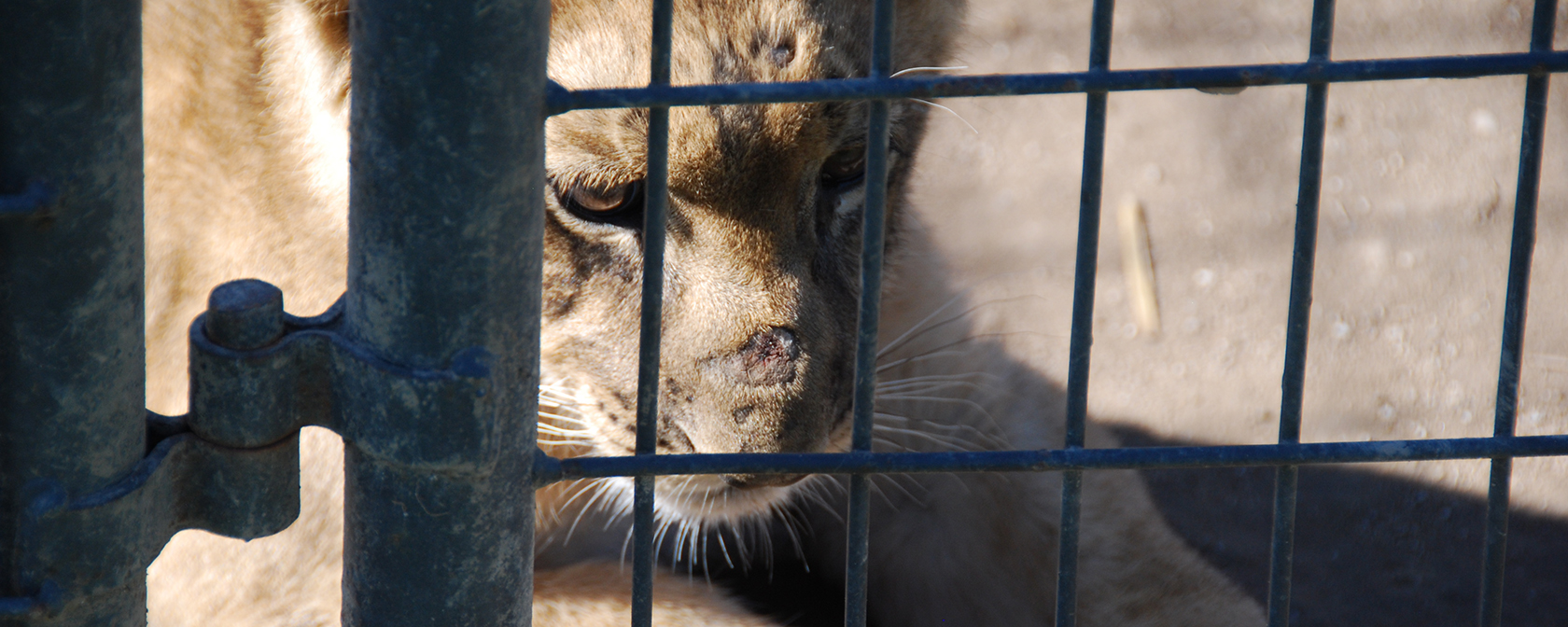By Sara Amundson and Kitty Block
The U.S. House has just passed a bill to prohibit public contact with big cats like tigers, lions and leopards as well as ban the possession of these animals as pets. The measure, which now awaits action in the Senate, has the potential to stop the endless cycle of breeding tiger cubs by those who charge the public to pet and take photos with the animals.
The Big Cat Public Safety Act, H.R. 1380, passed the House tonight by a vote of 272 to 114 (44 members did not vote). Introduced by Reps. Michael Quigley, D-Ill., and Brian Fitzpatrick, R-Penn., it gathered momentum after the release of Netflix’s "Tiger King" series about notorious roadside zoo owner Joe Exotic, who bred big cats and charged the public to pet and take selfies with the cubs.
The series also featured other roadside zoo owners, including Tim Stark, Kevin “Doc” Antle and Jeff Lowe—all poster boys for why we desperately need the Big Cat Public Safety Act. Together, these men have been responsible for terrible and senseless cruelties against captive big cats in their care, including shooting tigers to death to make room for new big cats, beating a leopard to death with a baseball bat, and causing long-lasting physical and psychological harm to cubs by separating them from their mothers.
But they are hardly the only ones exploiting captive big cats in the United States; there are many more exhibitors around the country, including some we have investigated, who recklessly breed these animals and/or use baby tigers and lions for the public to feed, pet, play with, and take photos with. The animals’ own essential needs and wellbeing are typically ignored and they are physically abused when they resist being handled endlessly.
By the time the cubs are three to four months old and are too big for public contact, they are usually warehoused at roadside zoos or pseudo sanctuaries, or sold as pets. It’s all too likely possible that tigers discarded from cub petting also feed the illegal market for animal parts used in traditional Asian medicine.
In addition to ending this cycle of abuse, the Big Cat Public Safety Act will prohibit the private possession of big cats. Many will remember the 2011 incident in Zanesville, Ohio, when a mentally disturbed man set loose his menagerie of 50 wild animals before committing suicide. Authorities were forced to shoot and kill the animals, including dozens of big cats. It was a grim reminder of the severe public safety risks involved in allowing unqualified individuals to own dangerous wild animals as pets.
Since 1990, more than 400 dangerous incidents involving captive big cats have occurred in 46 states and the District of Columbia. Twenty-four people have been killed, including five children, and hundreds have been injured with some even losing limbs or suffering other often-traumatic injuries. In many cases, as in Zanesville, the animals are shot and killed, often by first responders not trained to deal with such situations.
Thirty-five states now prohibit keeping big cats as pets. But to wipe this problem out for good, we need strong federal laws that will prevent unscrupulous people from forcing wild animals to spend their entire lives in abject misery, while creating a public safety nightmare. We have supported the Big Cat Public Safety Act since its inception and we couldn’t be happier that the House has voted decisively to stop the abuse. We now urge the Senate to take up this bill without delay. Please join us in urging your U.S. Senators to cosponsor and push for the passage of S. 2561. No one needs a pet tiger or lion in their backyard or garage, and no one needs to take a selfie with one, especially at such tremendous cost to the animals. It’s time we stopped this madness for good.
Kitty Block is President and CEO of the Humane Society of the United States.




